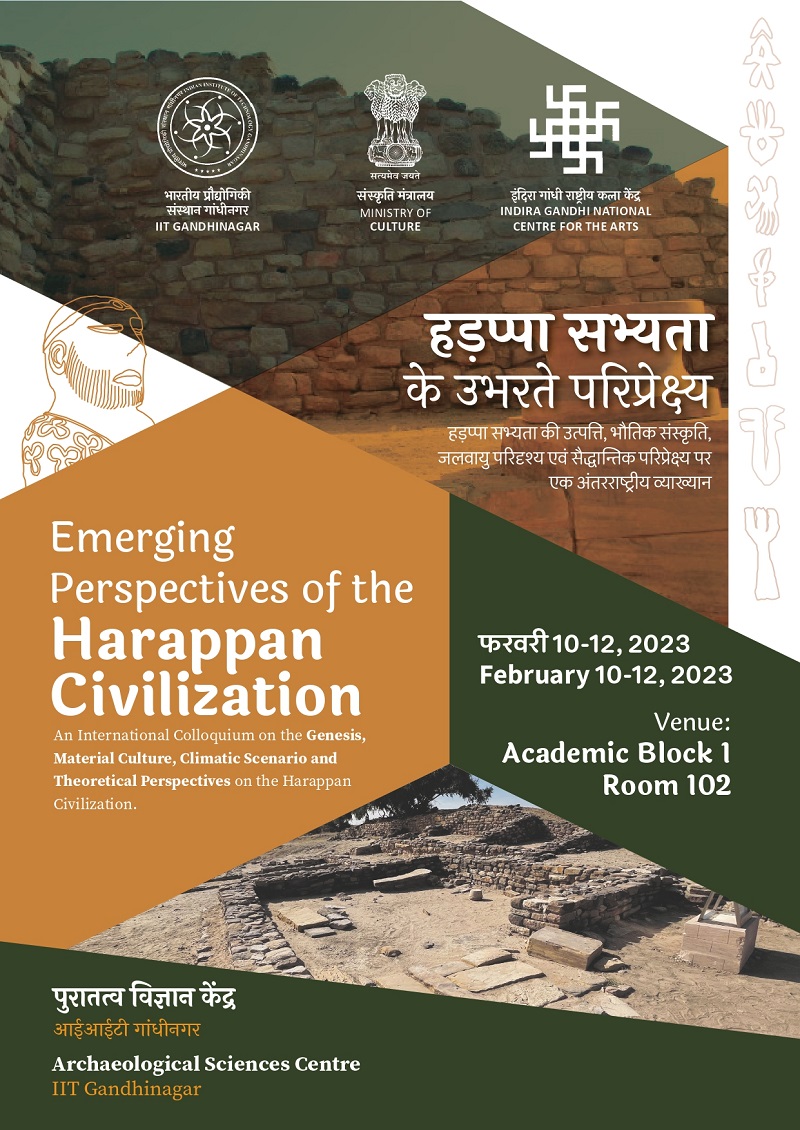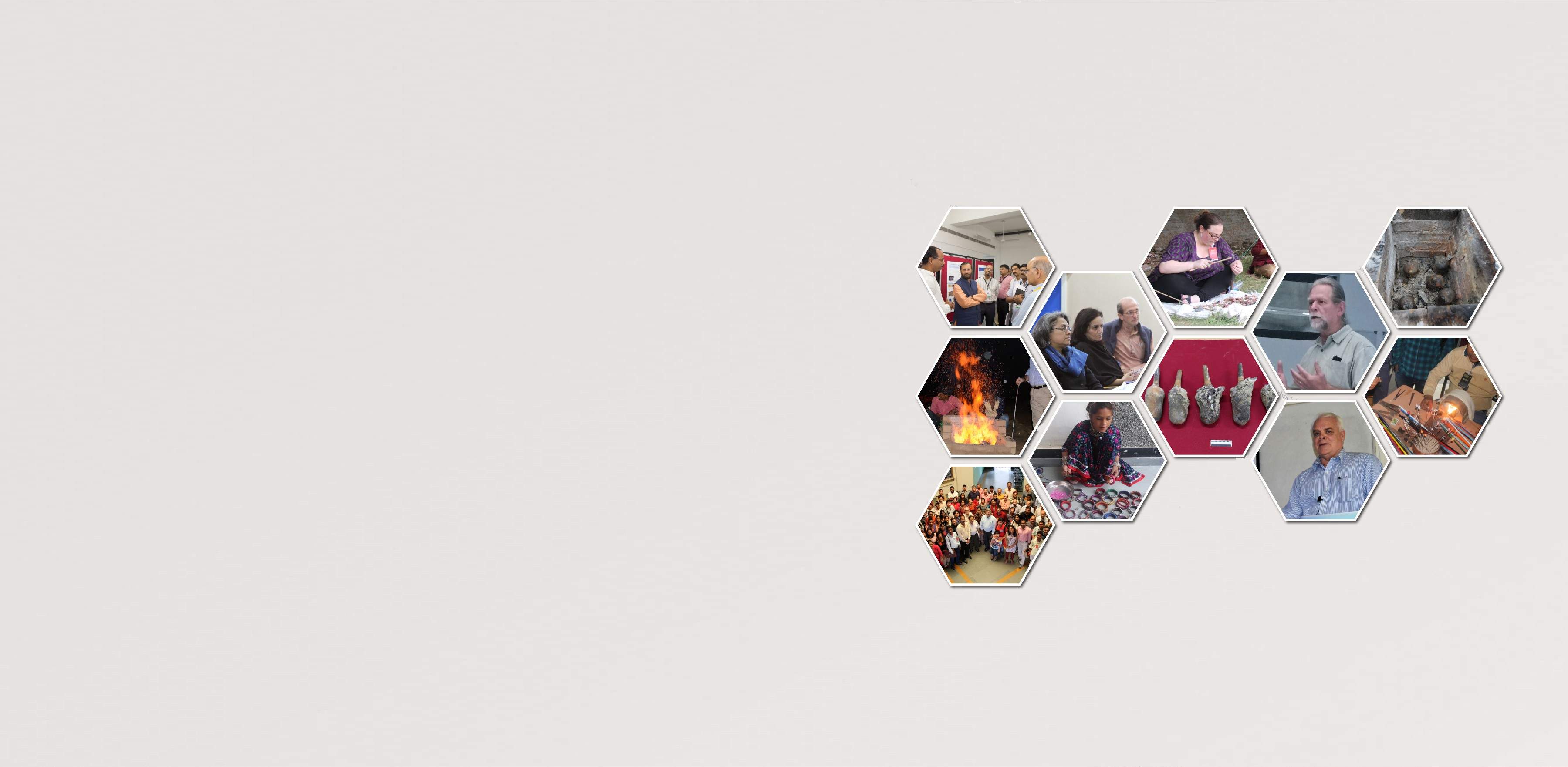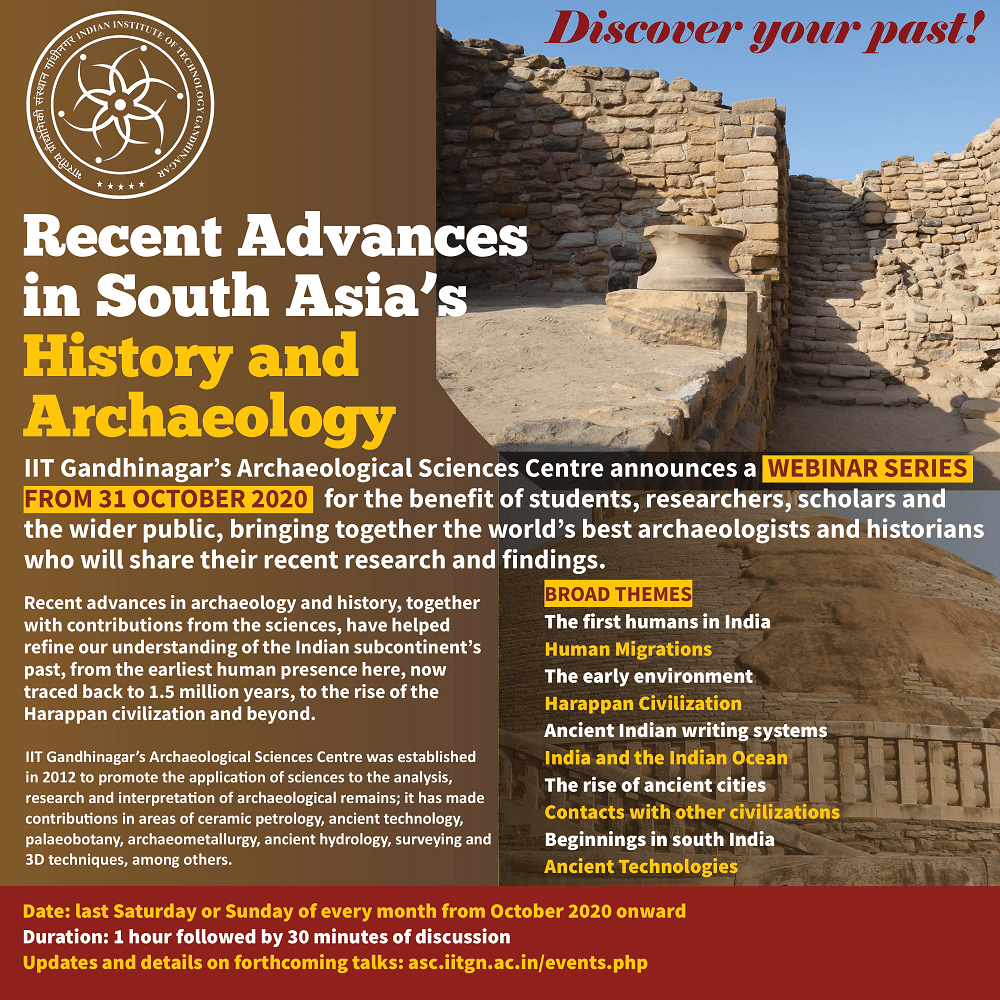Events
We have conducted several conferences, workshops, field visits, and have hosted a number of fine experts for lectures and short courses.
-
Timeline
2024
6-day workshop on Ceramic Petrography and its Applications in Archaeology
(Nov 4-9)Workshop on 'Fundamentals and Applications of Imaging Techniques in Archaeology
(April 21)2-day workshop on 'Metal Casting - Lost Wax Technique in Archaeology
(March 2-3)MAHSA QGIS, Survey Planning, and ODK Training Programme
(Feb 26-March 1)2023
International Colloquium on 'Emerging Perspectives of the Harappan Civilization'.
(Feb 10-12)15-day ONLINE training course on 'Geospatial Technology for Archaeological & Heritage Studies'
(Dec 7-23)2022
Traning workshop on GIS applications in Social Sciences
(May 13-14)2019
Short course on Elemental Analysis with ICP-MS and Isotopic Analyses with
MC-ICP-MS and TIMS
(July 2-5)
Workshop on Rock Art Drawing and Interpretation
(April 12)
Conference on History, Science and Technology of Ancient Indian Glass
(January 21-25)2018
Training workshop on Elemental Analysis with ICP-MS and Isotopic Analyses with MC-ICP-MS and TIMS
(July 30-31)2017
Conference (hosted): Dialogue of Civilizations, jointly organized by National Geographic Society and ASI
2016
Symposium on the Nagas
(September 15)2015
Workshop on History, Science & Technology of Stone Beads
(August 10-14)
Graduate student workshop on History and Archaeology of Ancient India
(January 30- February 1)
Maritime Gujarat and the Western Indian Ocean
(January 15)2014
Workshop on Archaeometallurgy and Archaeology
(December 8-9)
Training workshop on Applications of Remote Sensing to Archaeology
(15 March)2012
Workshop on Indian Archaeology, Epigraphy and Ancient History
(August 23-34) -
Workshops and Conferences
- ❏ 2019, April 12. In this 2.5 hours workshop titled Language beyond Words, artist and archaeologist Dr Anagha Bhat interacted with 20 participants from the institute through a range of visual, verbal and performative methods of sensory engagement and knowledge generation with an aim to demonstrate the importance of rock art as an interpretative tool in archaeological research.
- Download the poster poster ↗
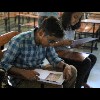
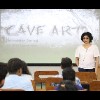
- ❏ 2019, January 21–25. Conference-cum-Workshop on History, Science and Technology of Ancient Indian Glass
With India witnessing the collapse of its traditional glass industry, over 20 world experts gathered to discuss nearly every aspect of the study of glass, from the origin of glass and faience to the manufacturing techniques developed at different times in South Asia, and the distribution of traded artifacts both within and far outside the region. The presentations also highlighted case studies of analytical techniques to probe the chemistry of ancient glasses. Craftspersons at this conference included glass-bead makers from Varanasi, stone-bead makers from Khambat and beading and mirror-stitching craftspersons from north Gujarat; speakers and over 50 participants were taken to two field trips, one of them to a workshop manufacturing hot-lead traditional mirrors. - Download the book of abstracts ↗
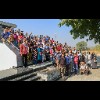
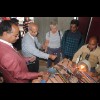
- ❏ 2016, September 15. In this Symposium on the Nagas, three experts discussed archaeological excavations undertaken in Nagaland and resulting cultural and historical linkages; ancient contacts of the Nagas through their burial practices and customs; and the ethnolinguistic diversity of Nagaland with the relationship between tribe, language and dialect.
- Download the programme ↗
- ❏ 2016, September 13. Symposium on Regional Mahabharatas
Three distinguished scholars presented fresh perspectives on regional Mahabharatas in Kannada, Telugu and Odia languages. - Download the programme ↗
- ❏ 2015, August 10–14. Short Term Course-cum-Workshop on History, Science & Technology of Stone Beads
Archaeologists and other experts from several countries discussed the development of stone beads through the ages, including literary and epigraphical references, methods of typology, traditional manufacturing techniques, and scientific investigations into stone-bead making technology. Traditional bead-making craftsmen from Khambhat were invited to demonstrate their skills during the workshop and provided training to some of the over 80 participants from India and neighbouring countries. An outcome of the workshop was the publication of a high-standard book in 2017, Stone Beads of South & South-East Asia: Archaeology, Ethnography and Global Connections, edited by Alok Kumar Kanungo. - Download the programme ↗
| the full report ↗
| a journal report ↗
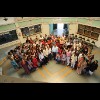
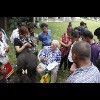
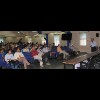
- ❏ 2015, January 30–February 1. Graduate Student Workshop on History and Archaeology of Ancient India
With the objective of giving a platform to young scholars, the workshop consisted of pre-screened paper presentations by over 20 postgraduate archaeology and history students from all over India. Two distinguished historians, Prof. Upinder Singh and Prof. Nayanjot Lahiri, delivered the inaugural and valedictory lectures respectively. - Download the programme ↗
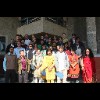
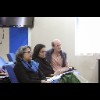
- ❏ 2015, January 15. Workshop on Maritime Gujarat and the Western Indian Ocean: Cultural Routes Through Time
In this workshop organized by IIT Gandhinagar and Project Mausam (Ministry of Culture, Government of India), eminent historians, anthropologists and archaeologists explored cultural routes of the Western Indian Ocean, with a focus on India and Africa. - Download the programme ↗
- ❏ 2014, December 8–9. Workshop on Archaeometallurgy and Archaeology jointly conducted by IIT Gandhinagar and Archaeological Survey of India. Eight archaeologists and metallurgists highlighted fundamentals of, as well as recent research in, archaeometallurgy, its principles and techniques, using case studies from the Indian subcontinent. Over 30 professional archaeologists and students attended the presentations and discussions.
- Download the programme ↗
| a poster ↗
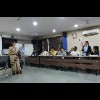
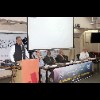
- ❏ 2012, August 23–24: Workshop on Indian Archaeology, Epigraphy and Ancient History.
Eighteen leading archaeologists, epigraphists, ancient historians and scientists from across India gave presentations on their field of expertise, including recent findings, fresh discoveries and new areas of research, ranging from the Palaeolithic age to the Indus and Ganges civilizations and beyond. The workshop was attended by about 50 scholars, faculty members and students, and (some of whom are studying to become history teachers). It was followed by a brainstorming session chaired by Prof. Sudhir K. Jain, Director of IIT Gandhinagar, which concluded on the need to create at IIT Gandhinagar a centre for archaeological sciences, taking advantage of the Institute’s technological base. - Download the programme ↗ | a poster ↗
-
Training Workshops
The Archaeological Sciences Centre organizes training workshops for professional archaeologists and students of archaeology.

2024, November 4-9
A 6-day workshop on Ceramic Petrography and its Applications in Archaeology was conducted by Profs. V.N. Prabhakar and K. Krishnan. The Resource Persons were Profs. V.N. Prabhakar, K. Krishnan (Retired Professor, MSU; Guest Professor, IITGN), and Dr. Ravi Kant Prasad (Assistant Professor, Rashtrakavi Ramdhari Singh Dinkar College of Engineering, Begusarai).

2024, April 21
A one-day workshop on Fundamentals and Applications of Imaging Techniques in Archaeology was conducted by Prof. Sharada C.V.. The Resource Person was Dr. Gargi Jani (Forensic Odontologist and Project Lead, National Forensic Sciences University, Gandhinagar).

2024, March 2-3
A 2-day training workshop on Metal Casting - Lost Wax Technique in Archaeology was conducted by Profs. Sharada C.V. and V.N. Prabhakar. The Resource Persons were Prof. S Udayakumar (Assistant Professor, NIAS, Bangalore) and Dr. Diya Mukherjee (Post Doctoral Research Associate, NIAS, Bangalore).

2024, Feb 26-March 1
A 5-day workshop on MAHSA QGIS, Survey Planning, and ODK Training Programme was conducted by Prof. V.N. Prabhakar. The Resource Persons were Azadeh Vafadari (Research Associate, McDonald Institute for Archaeological Research) and Kuili Suganya (Senior Technical Officer (Heritage), IIT Gandhinagar).

2023, Dec 7-23
A 15-day online training course on Geospatial Technology for Archaeological & Heritage Studies was conducted by Prof. V.N. Prabhakar (Associate Professor, IIT Gandhinagar), Dr. Ekta Gupta (ECF, IIT Gandhinagar), Haritha Kadapa (PhD Student, IIT Gandhinagar), Abhijit Ambhore (PhD Student, IIT Gandhinagar), and Camellia Biswas (PhD Student, IIT Gandhinagar).
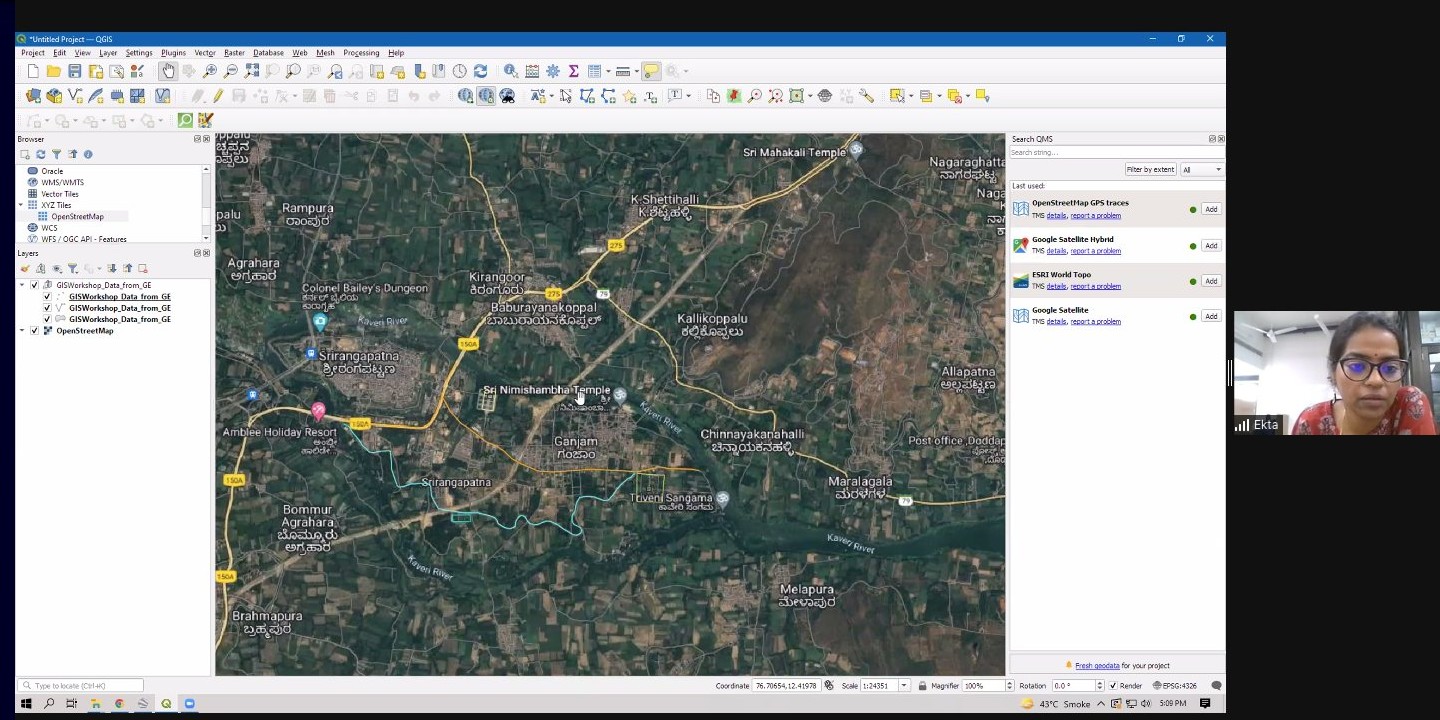
2022, May 13-14
A 2-day virtual training workshop on GIS Applications in Social Sciences, conducted by Dr. Ekta Gupta (ECF, IIT Gandhinagar), Ms. Camellia Biswas (PhD student, IIT Gandhinagar) and Dr. Sonam (Research Associate, IIT Gandhinagar).

2018, July 30–31 and 2019, July 2–5
Two training workshops on Elemental Analysis with ICP-MS and Isotopic Analyses with MC-ICP-MS and TIMS, conducted by Dr. Laure Dussubieux and Dr. Thomas R. Fenn.

2014, March 15
Training workshop on Applications of Remote Sensing to Archaeological Investigations, conducted by Dr. M.B. Rajani. Over 20 students and professionals of archaeology attended the theoretical and hands-on sessions.
-
Field Visits
Visit to copper ore mines at Ambaji, Gujarat
In a preliminary study based on lead isotope ratios, Dr. Randall Law concluded that the copper used in artefacts from the Harappan sites of Dholavira and Shikarpur (both in Kutch, Gujarat) originated from Ambaji in Gujarat’s Banaskantha District, in the foothills of the Aravalli Hills. In preparation for an experimental smelting exercise using traditional techniques, on 2nd January 2016, Prof. J.M. Kenoyer [link to Visiting Faculty page], Dr. V.N. Prabhakar and Dr. Alok Kanungo of Archaeological Sciences Centre visited copper ore sites at Ambaji. Further, they also visited the historical sites around Ambaji and found evidence of dumping of slags in antiquity. Two localities with such slag activities were identified, of which one is located close to a local shrine. The Ambaji copper ores are chiefly sulphates and can be easily identified from the green stains on the rocks. Prof. Kenoyer collected such samples, which were taken back to IIT Gandhinagar for smelting (see under Experimental Archaeology in the Research page).
-
Lectures
- ❏ 2024, August 30. Dr. Dr. Dennys Frenez: Special Lecture Series: Crafting a Writing System: Advances in the Genesis and Evolution of the Indus Script.
- Special Lecture poster ↗
- ❏ 2018, January 22–24. Dr. Yann-Pierre Montelle: Lecture series: “Human Evolution: of mosaic, hybrids, and braids | Homo faber: ubiquitous needs and cognition | Homo aestheticus: But is it Art?”
- poster & abstracts ↗
- ❏ 2017, September 15. Prof. Gwen Robbins Schug: “Climate Change, Health, and the Biocultural Experience of Resilience in the Indus Age of South Asia”
- poster & abstract ↗
- ❏ 2017, August 8–13. Prof. Lynn Meskell & Prof. Himanshu Prabha Ray: Lecture series: “Mobilizing the Materiality of Heritage: India and the World”
- poster ↗ | schedule & abstracts ↗
- ❏ 2017, February 2–3. Prof. Gary Warrick: Lecture series: “Indigenous Archaeology in Canada” and “Ancient Structures in the New World”
- poster ↗
- “First Peoples of the Americas”
- poster ↗
- "The Classic Maya Collapse - A Civilization in Ruins”
- poster ↗
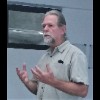
- ❏ 2016, September 6. Prof. B.B. Lal: “How Deep are the Roots of Indian Culture? An Archaeologist Inquires”
- poster ↗
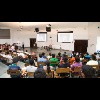
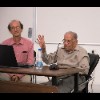
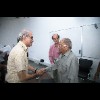
- ❏ 2016, April 18. Dr. Dennys Frenez: “Beyond Meluhha: Evidence for Harappans out of the Greater Indus Valley”
- abstract ↗
- ❏ 2016, January 12. Prof. Jonathan Mark Kenoyer: First Indira Foundation Distinguished Lecture: “Scientific and Technological Contributions of the Indus Civilization: Their Relevance for the Present”
- poster ↗
- ❏ 2016, January 4–7 & 13. Prof. Jonathan Mark Kenoyer: Lecture series: Five Special Lectures on Archaeology
- poster ↗
- ❏ 2015, July 13. Prof. Nalini Rao: “Lothal and Sindhu-Sarasvati Civilization”
- poster ↗
- ❏ 2015, March 12. Prof. Jan Kock: “East of Suez: Glass Beads, Bangles, Mirrors and More from India”
- poster ↗
- ❏ 2015, February 1. Prof. Nayanjot Lahiri: “Archaeology and the Study of the Indian Past: Challenges and Possibilities”
- ❏ 2015, January 30. Prof. Upinder Singh: “Dissatisfaction and the Writing of History”
- ❏ 2015, January 8. Prof. Jonathan Mark Kenoyer: “Stone Beads of the Indus Civilization: Technology and Trade”
- poster ↗
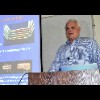
- ❏ 2014, November 10. Dr. Benjamin T. Valentine: “Telling New Stories with Old Bones: Understanding Harappan Migration through Archaeological Bone Chemistry”
- abstract ↗
- ❏ 2014, March 11. Prof. Nayanjot Lahiri: “Emperor Ashoka Between Archaeology and Texts”
- poster ↗
- ❏ 2013, October 18. Dr. R.S. Bisht: “Dholavira: A Unique Harappan City”
- poster ↗
- ❏ 2013, October 17. Dr. V.N. Prabhakar: “An Overview of the Harappan Civilization and the Application of Stable Isotope Analysis in Archaeology”
- poster ↗
- ❏ 2013, August 6. Prof. Vibha Tripathi: “Tracing the Growth of Iron Technology in Ancient India”
- abstract ↗
-
Visitors
- ❏ 2019, February 1. Smt. Usha Sharma, Director General, Archaeological Survey of India.
-
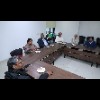
- ❏ 2019, January 15. Shri Navin Doshi, philanthropist and benefactor of IIT Gandhinagar.
- ❏ 2017, October 7. Shri Prakash Javadekar, Minister for Human Resource Development, Government of India.
-
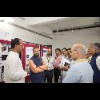
- ❏ 2017, October 7. Shri 2016, September 6. Prof. B.B. Lal, doyen of Indian Archaeology.
-
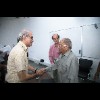
-
Webinar Series


Recent Advances in South Asia's History and Archaeology
Recent advances in the fields of archaeology and history, together with contributions from the sciences, have contributed enormously to the interpretation of archaeological remains and have helped refine our understanding of the Indian subcontinent’s past. In particular, archaeological research has thrown invaluable light on the earliest human presence here, now traced back to 1.5 million years; similarly, pastoralists of Ladakh are dated to the 9th millennium BCE. Human mobility and interactions in prehistory laid a firm foundation for later interactions, trade and economic activity, and the rise of civilization.
The contributions of archaeology for those periods devoid of written evidences is enormous: for instance, we can now understand the entire gamut of Harappan civilization, its lifestyles, trade, economy, technology, among other aspects. Even for later periods endowed with written records, archaeological studies compliment and support them with a variety of material evidence, often supplemented by scientific investigations that considerably enhance our understanding and interpretation of excavated materials. IIT Gandhinagar’s Archaeological Sciences Centre was established to promote the application of sciences to the analysis, research and interpretation of archaeological remains; in a few years, it has contributed applications of sciences in areas of ceramic petrology, ancient technology, palaeobotany, archaeometallurgy, ancient hydrology, surveying and 3D techniques, to name a few.
The Archaeological Sciences Centre proposes to conduct a monthly webinar series from October 2020 for the benefit of students, researchers, scholars and the wider public, by bringing together a host of expert archaeologists and historians to share their recent research and findings. The webinars will be hosted in Google Meet / Zoom platform. Each lecture (of 60 minutes followed by 15 minutes of discussion) will be hosted once a month, either on a Saturday or Sunday. Lectures will be recorded and later hosted on a separate YouTube channel.
-
Lecture 49 onwards

- ❖ Lecture LXIV by Dr. Niraj Rai on The Genetic Tapestry of our past 4.00 PM IST on 31.01.2026
- ❖ Lecture LXIII by Dr. SK Aruni on Recent Advances in South Asia's History and Archaeology 4.00 PM IST on 29.12.2025
- ❖ Lecture LXII by Prof. Arjun Rao on Recent Advances in South Asia's History and Archaeology 4.00 PM IST on 29.11.2025
- ❖ Lecture LXI by Prof. Anand Singh on Recent Advances in South Asia's History and Archaeology 4.00 PM IST on 25.10.2025
- ❖ Lecture LX by Prof. Kathleen Morrison on Recent Advances in South Asia's History and Archaeology 4.00 PM IST on 27.09.2025
- ❖ Lecture LIX by Prof. Mark Lycett on Recent Advances in South Asia's History and Archaeology 4.00 PM IST on 30.08.2025
- ❖ Lecture LVIII by Prof. Sheila Mishra on Recent Advances in South Asia's History and Archaeology 4.00 PM IST on 26.07.2025
- ❖ Lecture LVII by Prof. Benjamin Mutin on Recent Advances in South Asia's History and Archaeology 4.00 PM IST on 24.06.2025
- ❖ Lecture LVI by Prof. Anil Kumar Devara on Recent Advances in South Asia's History and Archaeology 4.00 PM IST on 31.5.2025 (Saturday)
- ❖ Lecture LV by Prof. Peter Cobb on Towards Big Data Archaeology: Experiments in Large-scale Digitization of Fieldwork 4.00 PM IST on 26.4.2025 (Saturday)
- ❖ Lecture LIV by Prof Andrew Bauer on The Geoarchaeology of Southern Indian Water Management Systems in Global and Local Perspectives 6.00 PM IST on 29.3.2025 (Saturday)
- ❖ Lecture LIII by Dr Ravi Kant Prasad on Ceramic Petrology for Archaeology: AGeologist's Perspective 4.00 PM IST on 22.02.2025 (Saturday)
- ❖ Lecture LII by Prof Eleanora A Reber on Organic Residue Analysis and You: Sampling and Interpreting Lipid Residues in Archaeological Pottery 4.00 PM IST on 25.1.2025 (Saturday)
- ❖ Lecture LI by Dr Ekta Gupta on Understanding Ancient Landscapes: The Role of Early Maps and Satellite Remote Sensing 4.00 PM IST on 28.12.2024 (Saturday)
- ❖ Lecture L by Prof. Prathapachandran S on Early Historic Western India: Recent Research and Insights at 4:00 PM on 23.11.2024 (Saturday)
- ❖ Lecture XLIX by Prof. Paolo Biagi on The shell middens of the Arabian Sea and their importance in the archaeology of the region at 4:00 PM on 26.10.2024 (Saturday)
-
Lecture 37-48
- ❖ Lecture XLVIII by Prof. Steven Sidebotham on Indians at Berenike: A Ptolemaic-Roman Emporium on Egypt’s Red Sea Shore at 6:00 PM on 28.09.2024 (Saturday)
- ❖ Lecture XLVII by Prof Shrikant Ganvir on An Archaeological Profile of Early Buddhist Monastic Sites of Telangana at 4:00 PM on 24.08.2024 (Saturday)
- ❖ Lecture XLVI by Dr T S Ravishankar on Iconographical studies - An Epigraphical perspective at 4.00 PM IST on 27.7.2024 (Saturday)
- ❖ Lecture XLV by Prof Suchandra Ghosh on Whispering’ of Inscriptions: Situating the occupational groups in the Socio-Economic Profile of Early India (1st century CE to 13th century CE) at 4.00 PM IST on 29.6.2024 (Saturday)
- ❖ Lecture XLIV by Dr Charusmita Gadekar on Significance of stone tools from Chalcolithic Gujarat: Recent Perspectives at 4.00 PM IST on 25.5.2024 (Saturday)
- ❖ Lecture XLIII by Dr Susmita Basu Majumdar on Piyadasi Alias Asoka: Recent Researches at 5.00 PM IST on 27.4.2024 (Saturday)
- ❖ Lecture XLII by Prof. Gregg Jamison on Unicorn Seal Production in the Indus Civilization: A Comparative Study of Style, Skill, and Standardization at 11.00 PM IST on 23.03.2024
- ❖ Lecture XLI by Dr Kurush Dalal on ArchaeoBroma: the comprehensive study of food using archaeology at 4.00 PM IST on 24.02.2024 (Saturday)
- ❖ Lecture XL by Dr Vidula Jayaswal on Settlement Pattern and Hierarchy of Ancient Varanasi at 4.00 PM IST on 27.01.2024 (Saturday)
- ❖ Lecture XXXIX by Dr Satyabhama Bhadreenath on Iron Age Culture of North Tamil Nadu with Special Reference to Siruthavur at 4.00 PM IST on 30.12.2023 (Saturday)
- ❖ Lecture XXXVIII by Mr Nizamuddin Taher on Preventive Conservation of Archaeological Sites and Protected Monuments: A Narrative at 4.00 PM IST on 25.11.2023 (Saturday)
- ❖ Lecture XXXVII by Prof Parul Pandya Dhar on Towards a Connected Art History of India and Southeast Asia at 4.00 PM IST on 28.10.2023 (Saturday)
-
Lecture 25-36
- ❖ Lecture XXXVI by Prof Ajit Kumar on Retrospective Analysis of Prehistoric and Protohistoric Vestiges from Kerala at 4.00 PM IST on 30.9.2023 (Saturday)
- ❖ Lecture XXXV by Prof K Krishnan on Viewing Ceramic Thin-sections: Methods and Prospects at 4.00 PM IST on 26.08.2023 (Saturday)
- ❖ Lecture XXXIV by Prof YS Alone on Ajanta Caves: Understanding their Chronology at 4.00 PM IST on 29.7.2023 (Saturday)
- ❖ Lecture XXXIII by Prof Shonaleeka Kaul on Physical and Sensorial Representation of the city in early India at 4.00 PM IST on 24.6.2023 (Saturday)
- ❖ Lecture XXXII by Dr RS Bisht on Roots of the Harappan Civilization at 4.00 PM IST on 27.05.2023 (Saturday)
- ❖ Lecture XXXI by Dr Srikumar M Menon on Megalithic Stone Alignments and their Possible Connections with Astronomy at 4.00 PM IST on 06.05.2023 (Saturday)
- ❖ Lecture XXX by Dr Kalyan Sekhar Chakraborty on Multi-proxy reconstruction of human-animal interaction: A glimpse into the subsistence economy in Gujarat during the 3rd Millennium BCE at 4.00 PM IST on 25.3.2023 (Saturday)
- ❖ Lecture XXIX by Dr Ayumu Konasukawa on Harappan seals having a right-facing animal motif: its significance for understanding the chronology or regional variations of the Harappan seals at 4.00 PM IST on 25.2.2023 (Saturday)
- ❖ Lecture XXVIII by Dr. Randall Law, University of Wisconsin-Madison, USA on Characterisation and Geologic Provenance Studies of Stone and Metal ARtifacts: Case Studies from Across South Asia at 7 PM (IST), 28.01.2023
- ❖ Lecture XXVII by Dr. S.V. Rajesh, Kerala University on Pre-Urban Harappan Burials in Gujarat: New Evidence from Juna Khatiya at December 31, 2022 at 4:00 PM (IST)
- ❖ Lecture XXVI by Dr. Abhayan GS on Iron Age in Kerala: An Overview and Recent Research at 4.00 PM on 26 November, 2022
- ❖ Lecture XXV by Prof. Sharada C.V. on Human-Animal Relations across Time and Space: Case Studies of Recent Approaches and Novel Perspectives at 4.00 PM on 29 October, 2022
-
Lecture 13-24
- ❖ Lecture XXIV by Dr. Suraj A Pandit on Krishnagiri Mahavihara: Study on its Patronage during Early Historic Period at 4.00 PM on 24.09.2022
- ❖ Lecture XXIII by Dr. Veena Mushrif-Tripathy on Implications of Palaeopathology on Human Skeletal Analysis at 4.00 PM on 27.08.2022.
- ❖ Lecture XXII by Prof. Robin Coningham on Beyond the Sacred City: Repositioning Anuradhapura within its hinterland at 4.00 PM IST on 23.07.2022.
- ❖ Lecture XXI by Prof. Manjil Hazarika on Historical Archaeology of Brahmaputra Valley: Recent Perspectives at 4.00 PM on 25.06.2022.
- ❖ Lecture XX by Prof. Jonathan Mark Kenoyer on Ornaments in Prehistoric and Early Historic South Asia: Archaeological and Analytical Approaches at 4.00 PM on 28.05.2022.
- ❖ Lecture XIX by Dr. M.B. Rajani on Remote Sensing in Archaeology: A Few Case Studies at 4.00 PM on 30.04.2022.
- ❖ Lecture XVIII by Dr. Y.S. Rawat on Vadnagar: The Early Historic City of Anarta and its Buddhist Remains at 4.00 PM on 26.03.2022.
- ❖ Lecture XVII by Dr. Sunil Gupta on Early Historic Exchange Networks and Ancient Ports of India (300 BCE – 300 CE) at 4.00 P.M. on 26.02.2022.
- ❖ Lecture XVI by Prof. Monica Smith, University of California, Los Angeles on Cities and Their Financial Innovations: An Inquiry into Early Historic Urban Practices at 11.00 AM on 29.01.2022.
- ❖ Lecture 15 by Prof. K. Rajan, formerly Central University Pondicherry on Early Historic Trade of South India at 4.00 PM on 25.12.2021.
- ❖ Lecture 14 by Prof. V. Selvakumar, Associate Professor, Tamil University, Thanjavur on Megalithic Cultures of South India at 4.00 PM on 27.11.2021.
- ❖ Lecture 13 by Prof. Abhijit Dandekar, Associate Professor, Deccan College on A Peek into Ancient Polity and Economy through Coins at 4.00 PM on 30.10.2021.
-
Lecture 1-12
- ❖ Lecture 12 by Prof. Michel Danino on Harappan Town Planning: Unravelling its Ratios and Linear Measures at at 4.00 PM on 25.09.2021..
- ❖ Lecture 11 by Dr. V.N. Prabhakar on The Harappan City of Dholavira and its Inscription in the World Heritage List at at 4.00 PM on 28.08.2021.
- ❖ Lecture 10 by Dr. Akinori Uesugi on Maritime trades between the Indus and Bahrain towards the end of the Indus Urban period .
- ❖ Lecture 9 by Dr. Dennys Frenez, University of Bologna, Italy on “The Indus Civilization Trade with the Umm an-Nar Communities of the Oman Peninsula. Hints of a «Global» Marketing Strategy?”.
- ❖ Lecture 8 by Prof. Ajay Pratap, Banaras Hindu University on "Rock Art in India: Issue and Challenges in its Consideration as a Stepping Stone to Language and Scripts”.
- ❖ Lecture 7 by Prof. Ajithprasad, MS University on “Harappan Civilization in Gujarat: Current Perspective”.
- ❖ Lecture 6 by Prof. Cameron Petrie, Cambridge University on on “How Did Climate Change Impact on the Indus Civilization? Insights from the Land, Water and Settlement and Two Rains Projects”.
- ❖ Lecture 5 by Dr. Nisha Yadav, TIFR on “Script of the Harappan Civilization”.
- ❖ Lecture 4 by Prof. Nayanjot Lahiri on “Are Archaeological Discoveries like Scientific Discoveries? Understanding the discovery of the Harappan Civilization”.
- ❖ Lecture 3 by Prof. Shanti Pappu and Dr. Kumar Akhilesh on “Time, Tools and Terrain: Rethinking Paradigms in Indian Prehistory”.
- ❖ Lecture 2 by Prof. Parth Chauhan on “Prehistoric humans, animals and art: Current mysteries in Indian paleoanthropology”.
- ❖ Lecture 1 by Prof. Ravi Korisettar on “Prehistoric Colonization in the Indian Subcontinent”.
-
-
Forthcoming
Lithics and Lives: The Past and Present in Stone Tool Studies, a 3-day Hands-on Training Workshop in Lithic Knapping from 27-29 January 2026
Colloquium